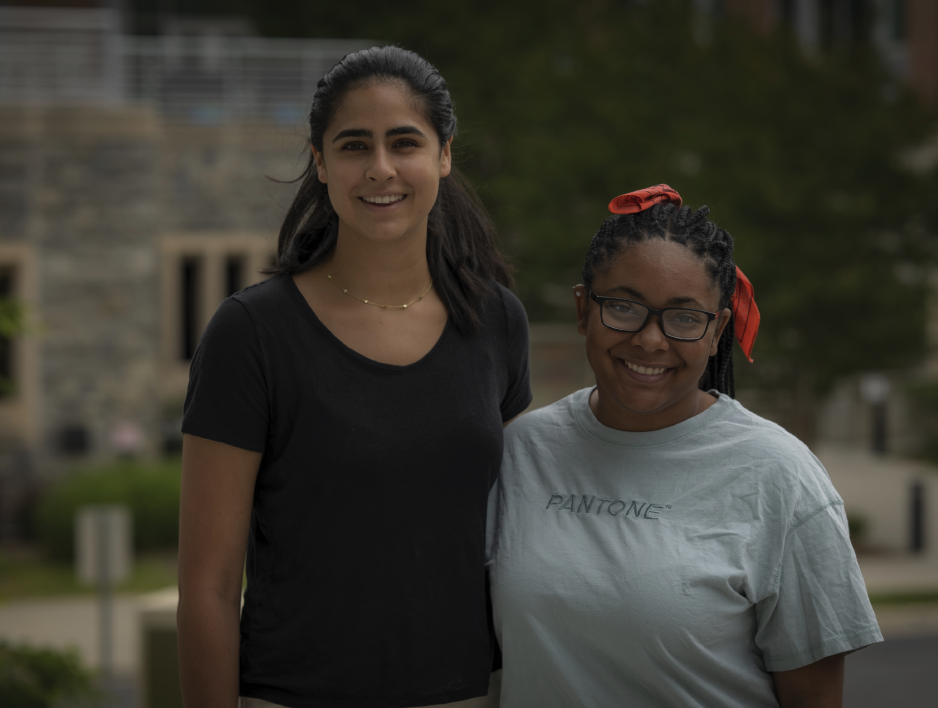JEDI Corner: Biostatistics Program Gives Students Real-World Experience
Alexandra Hanlon, Ryann Kolb, and Alicia Lozano
The Justice, Equity, Diversity, and Inclusion (JEDI) Outreach Group Corner is a regular component of Amstat News in which statisticians write about and educate our community about JEDI-related matters. If you have an idea or article for the column, email the JEDI Corner manager.
Editor’s note: This month’s JEDI Corner highlights a training opportunity for undergraduate students from underrepresented backgrounds. Such programs are a key component of promoting JEDI in our profession.
The Collaborative Undergraduate Biostatistics Experience (CUBE) is gearing up for its second year at Virginia Tech this summer. CUBE exposes undergraduate STEM students, specifically those who are part of an underrepresented/minority population, to the data science and collaborative biostatistics fields. In this eight-week summer program, students focus on the following four pillars:
- Training in introductory biostatistics
- Training in R programming
- Professional development
- A collaborative research project that addresses research questions in a health-related field
The goal of the program is to allow students to work with a real-world data set under the mentorship of experienced collaborative data scientists and clinical experts to help them determine if they want to pursue a career in collaborative applied data science. In the short-term, the program develops skills students can use for the workforce or graduate school, including communication, critical thinking, problem solving, teamwork, and other unique skills that are not taught as effectively in a classroom. Longer-term, the program will bring awareness to the collaborative biostatistics field, and we want our profession to represent the intersectionality of our society through broad participation.
… the program will bring awareness to the collaborative biostatistics field, and we want our profession to represent the intersectionality of our society through broad participation.
The initial weeks of the program focus on learning course material in introductory biostatistics and basic R programming, with professional development sessions sprinkled throughout. As students develop these foundations, they are given opportunities to apply their knowledge to a real-life collaborative research project. The program culminates in an oral and poster presentation at a symposium, which allows students to tie together everything they have learned throughout the program and present it to others.
Regardless of their educational goals or intended career path, we want participants to leave the program with knowledge that will support their ongoing professional development. CUBE’s professional development sessions are spread throughout the program. Some include lectures that focus on topics like communication, team science, building a résumé, and applying to graduate school. Others include touring cutting-edge research labs, attending networking lunches, listening to presentations from biostatisticians that detail a day in their life, etc.

From left: CUBE 2022 Virginia Tech interns Kinara Gasper and Kayla Williams
Photo/Ryan Anderson, Virginia Tech School of Medicine
In the summer of 2022, CUBE was piloted by four students, whose final projects looked at a variety of current and pressing research topics. Two of the students worked together to examine socio-demographic characteristics (race, sex, income, insurance plan, and age) associated with sports-related ACL injuries diagnosed in the emergency department. The other two students engaged in projects independently. One explored antibody trajectories among dialysis patients after receiving the COVID-19 vaccine, while the other student’s project looked at the experience of cancer pain from the perspective of patient and family caregivers using a Smart Health sensing system.
We look forward to seeing these students explore new questions and gain knowledge they will take with them far beyond this program.

















